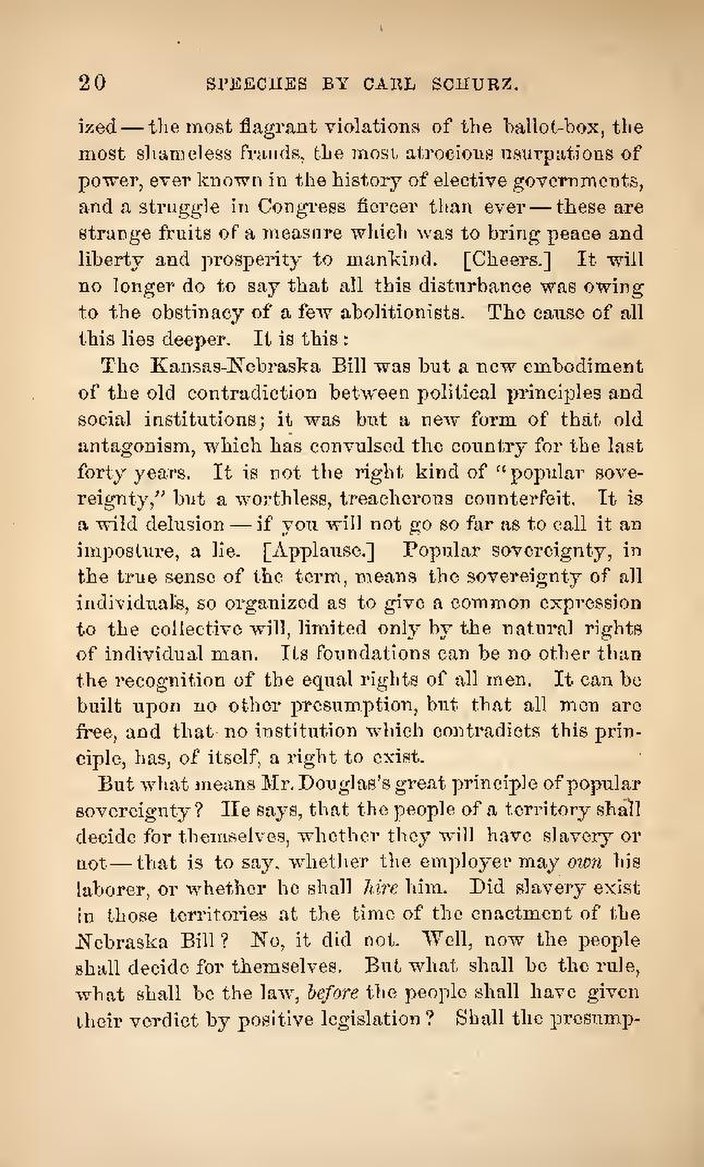ized—the most flagrant violations of the ballot-box, the most shameless frauds, the most atrocious usurpations of power, ever known in the history of elective governments, and a struggle in Congress fiercer than ever—these are strange fruits of a measure which was to bring peace and liberty and prosperity to mankind. [Cheers.] It will no longer do to say that all this disturbance was owing to the obstinacy of a few abolitionists. The cause of all this lies deeper. It is this:
The Kansas-Nebraska Bill was but a new embodiment of the old contradiction between political principles and social institutions; it was but a new form of that old antagonism, which has convulsed the country for the last forty years. It is not the right kind of “popular sovereignty,” but a worthless, treacherous counterfeit. It is a wild delusion—if you will not go so far as to call it an imposture, a lie. [Applause.] Popular sovereignty, in the true sense of the term, means the sovereignty of all individuals, so organized to give a common expression to the collective will, limited only by the natural rights of individual man. Its foundations can be no other than the recognition of the equal rights of all men. It can be built upon no other presumption, but that all men are free, and that no institution which contradicts this principle, has, of itself, a right to exist.
But what means Mr. Douglas's great principle of popular sovereignty? He says, that the people of a territory shall decide for themselves, whether they will have slavery or not—that is to say, whether the employer may own his laborer, or whether he shall hire him. Did slavery exist in those territories at the time of the enactment of the Nebraska Bill? No, it did not. Well, now the people shall decide for themselves. But what shall be the rule, what shall be the law, before the people shall have given their verdict by positive legislation? Shall the presump-
